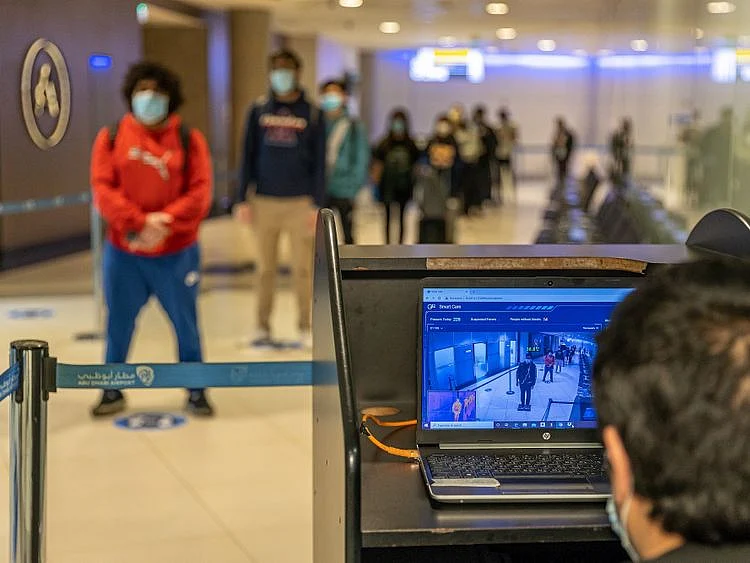PCR Test: Abu Dhabi passengers have to bear full responsibility
All travellers arriving in Abu Dhabi will have to present a negative COVID-19 PCR test

Abu Dhabi: All passengers arriving to the UAE through Abu Dhabi will have to bear full responsibility in obtaining a negative COVID-19 certificate at least 96 hours prior to departure, announced Abu Dhabi International Airport.
On its website, the airport updated the new procedures and stressed that passengers have to comply with all travel requirements, and emphasised that neither the airport or the airline can be held liable for any problems related to non-compliance.
Also Read
Missing Comic-Con? Check out awesome costumes over the yearsImages of essential workers projected on Cristo Rey monumentSensible and chic: The $185 luxury face mask from BelgiumPhotos: German army trains dogs to detect COVID-19 infection“Before travelling to, from or through Abu Dhabi Airport, please ensure that you are familiar with the regulations that apply to your trip,” said the authority on its website. It also called on travellers to check the requirements of their journey through contacting a range of establishments, including but not limited to:
The airport noted that travellers in Abu Dhabi airport will need to wear a face mask and disposable gloves, in addition to the adherence of social distancing at all times.
What are the rules?
If you are arriving in the UAE, you will need to obtain a negative COVID-19 PCR test result before your travel, issued no more than 96 hours prior to your arrival in the UAE.
Upon arrival, all inbound passengers will have to undergo a mandatory COVID-19 PCR test at Abu Dhabi International Airport.
Also Read
Emirates to cover passengers for COVID-related medical expensesDubai COVID-19 PCR test: Passengers from select countries to be tested twice starting August 1A second wave of COVID-19 cases can hit airlines hardBritish Airways averts a crisis after job deal with pilotsThe airport noted that travellers in Abu Dhabi airport will need to wear a face mask and disposable gloves, in addition to following social distancing measures at all times.
10 safety procedures
Abu Dhabi International Airport has adopted 10 preventive measures to ensure the safety of passengers and staff :
Network Links
GN StoreDownload our app
© Al Nisr Publishing LLC 2026. All rights reserved.